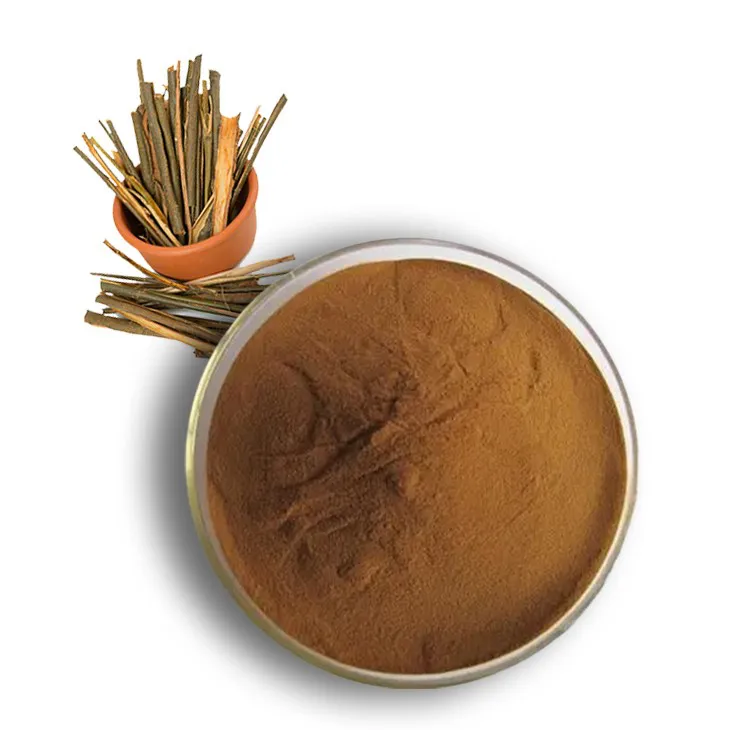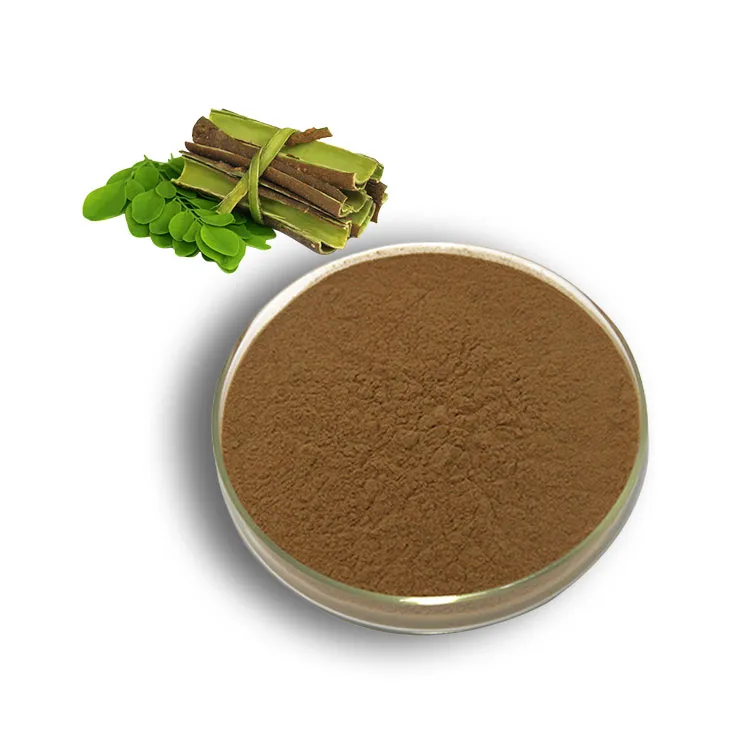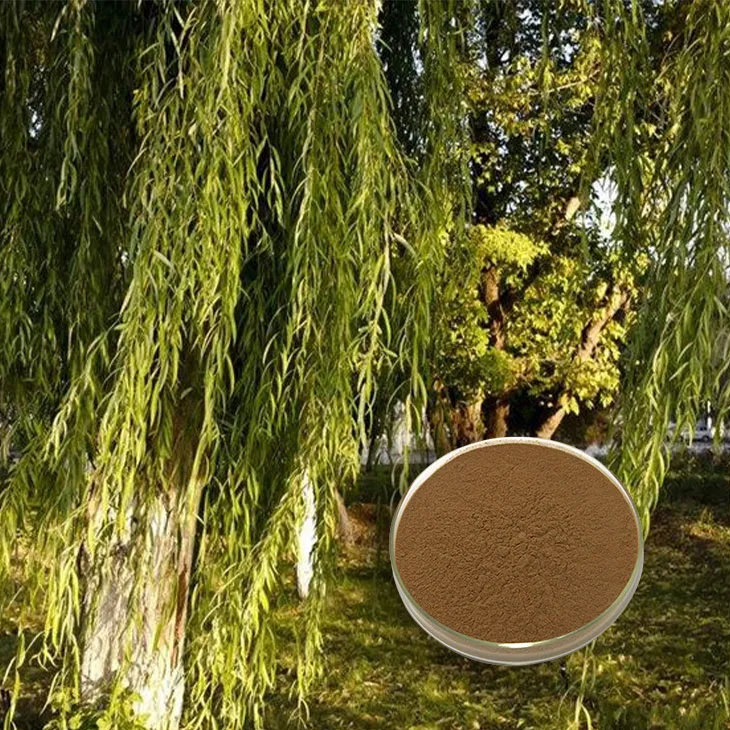- 0086-571-85302990
- sales@greenskybio.com
Does white willow bark extract have benefits for diabetes? Are these all safe and suitable for diabetic patients?
2024-11-14

1. Introduction
Diabetes is a chronic metabolic disorder that affects millions of people worldwide. Management of diabetes often involves lifestyle changes, dietary control, and the use of medications. In recent years, there has been growing interest in alternative remedies, such as White Willow Bark Extract. White willow bark has a long history of use in traditional medicine, but its relationship with diabetes is still a subject of research and debate.

2. Chemical Components in White Willow Bark Extract Relevant to Diabetes
White willow bark contains several chemical components that may potentially have an impact on diabetes management.
2.1 Salicin
Salicin is one of the main active components in White Willow Bark Extract. It is a precursor to salicylic acid. Salicin has been shown to have anti - inflammatory properties. Inflammation is often associated with insulin resistance, a key factor in type 2 diabetes. By reducing inflammation, salicin may potentially improve insulin sensitivity. However, more research is needed to determine the direct impact of salicin on blood glucose levels in diabetic patients.
2.2 Flavonoids
White willow bark also contains flavonoids. Flavonoids are known for their antioxidant properties. In diabetes, oxidative stress is increased, which can damage cells and tissues, including pancreatic beta - cells responsible for insulin production. The antioxidant effects of flavonoids in white willow bark may help to reduce oxidative stress. This could potentially protect pancreatic beta - cells and improve insulin production. But again, the evidence regarding their specific effects on diabetes is not conclusive.

3. Efficacy of White Willow Bark Extract in Diabetes Treatment and Prevention
Several studies have been conducted to investigate the efficacy of white willow bark extract in diabetes.
3.1 Animal Studies
- In some animal studies, white willow bark extract has shown promising results. For example, in diabetic rats, administration of white willow bark extract was associated with a reduction in blood glucose levels. This reduction was thought to be due to the combined effects of its anti - inflammatory and antioxidant components.
- However, it is important to note that animal studies may not always accurately reflect the situation in humans. There are differences in physiology and metabolism between animals and humans, which can limit the direct translation of these findings.
3.2 Human Studies
- There have been a limited number of human studies on white willow bark extract and diabetes. Some small - scale studies have suggested that it may have a mild effect on blood glucose control. For instance, in a short - term study involving a small group of patients with type 2 diabetes, those taking white willow bark extract showed a slight decrease in fasting blood glucose levels compared to the control group.
- Nevertheless, these human studies are often limited by factors such as small sample size, short study duration, and lack of long - term follow - up. As a result, the evidence for the efficacy of white willow bark extract in diabetes treatment and prevention is still weak.

4. Safety Aspects of White Willow Bark Extract for Diabetic Patients
When considering the use of white willow bark extract in diabetic patients, safety is a crucial factor.
4.1 Allergic Reactions
- Some people may be allergic to white willow bark extract. Allergic reactions can range from mild symptoms such as skin rashes and itching to more severe reactions like difficulty breathing and anaphylactic shock. Diabetic patients, especially those with a history of allergies, should be cautious when using white willow bark extract.
- Before starting to use white willow bark extract, it is advisable for diabetic patients to undergo an allergy test or consult a healthcare provider.
4.2 Interactions with Other Medications
- Diabetic patients often take other medications to control their blood glucose levels, blood pressure, and cholesterol. White willow bark extract may interact with some of these medications.
- For example, white willow bark contains salicylates, which are similar to aspirin. If a diabetic patient is already taking aspirin or other blood - thinning medications, taking white willow bark extract may increase the risk of bleeding. Additionally, it may interact with medications used to control blood glucose levels, potentially affecting their efficacy.
- Therefore, diabetic patients should inform their healthcare providers if they are considering using white willow bark extract to avoid any potential harmful interactions.

5. Conclusion
In conclusion, white willow bark extract contains components that may have potential benefits for diabetes management, such as anti - inflammatory and antioxidant properties. However, the evidence for its efficacy in treating and preventing diabetes in humans is currently insufficient. Moreover, there are safety concerns, including the potential for allergic reactions and interactions with other medications commonly used by diabetic patients. Until more comprehensive and conclusive research is available, diabetic patients should be cautious when considering the use of white willow bark extract and should always consult their healthcare providers before starting any new supplement or alternative remedy.
FAQ:
Q1: What are the main chemical components in white willow bark extract that might be related to diabetes?
The main chemical component in white willow bark extract that is relevant to diabetes is salicin. Salicin is a precursor to salicylic acid. In theory, it may have anti - inflammatory properties which could potentially play a role in diabetes management as inflammation is associated with insulin resistance and other diabetic complications. However, more research is needed to fully understand its exact mechanisms in relation to diabetes.
Q2: How does white willow bark extract potentially help in diabetes treatment?
Some studies suggest that the anti - inflammatory nature of white willow bark extract may help improve insulin sensitivity. Insulin resistance is a major factor in type 2 diabetes. By reducing inflammation, it might enhance the body's ability to respond to insulin more effectively. Additionally, it may also have antioxidant properties which could protect pancreatic beta - cells (the cells that produce insulin) from oxidative stress, which is often increased in diabetic patients.
Q3: Is there evidence for white willow bark extract in preventing diabetes?
Currently, the evidence for white willow bark extract in preventing diabetes is rather limited. While some in - vitro and animal studies have shown promising results in terms of its effect on factors related to diabetes development such as blood glucose regulation and insulin sensitivity, there are few large - scale human trials specifically focused on its preventive role in diabetes. More research is required to establish any definitive preventive benefits.
Q4: What are the potential allergic reactions associated with white willow bark extract in diabetic patients?
Allergic reactions to white willow bark extract can range from mild to severe. Mild reactions may include skin rashes, itching, and hives. In more severe cases, it can lead to difficulty breathing, swelling of the face or throat, and anaphylactic shock. Diabetic patients, like any other individuals, may be at risk of these allergic reactions, especially if they have a history of allergies or hypersensitivity to related substances such as aspirin (since white willow bark extract contains a compound related to aspirin).
Q5: Can white willow bark extract interact with other medications used by diabetic patients?
Yes, white willow bark extract can interact with other medications commonly used by diabetic patients. For example, it may interact with blood - thinning medications like warfarin, increasing the risk of bleeding. It can also interact with certain diabetes medications. Since it has properties similar to aspirin, it may potentiate the effects of some drugs or cause unwanted side effects. Diabetic patients should always consult their healthcare provider before using white willow bark extract to avoid potential drug interactions.
Related literature
- The Role of Natural Extracts in Diabetes Management: A Focus on White Willow Bark"
- "White Willow Bark Extract: Chemical Composition and Potential Health Benefits in Diabetic Conditions"
- "Safety and Efficacy of Botanical Supplements, including White Willow Bark, in Diabetic Patients"
- ▶ Hesperidin
- ▶ Citrus Bioflavonoids
- ▶ Plant Extract
- ▶ lycopene
- ▶ Diosmin
- ▶ Grape seed extract
- ▶ Sea buckthorn Juice Powder
- ▶ Fruit Juice Powder
- ▶ Hops Extract
- ▶ Artichoke Extract
- ▶ Mushroom extract
- ▶ Astaxanthin
- ▶ Green Tea Extract
- ▶ Curcumin
- ▶ Horse Chestnut Extract
- ▶ Other Product
- ▶ Boswellia Serrata Extract
- ▶ Resveratrol
- ▶ Marigold Extract
- ▶ Grape Leaf Extract
- ▶ New Product
- ▶ Aminolevulinic acid
- ▶ Cranberry Extract
- ▶ Red Yeast Rice
- ▶ Red Wine Extract
-
Stevia Extract
2024-11-14
-
Maca Extract
2024-11-14
-
melatonin extract
2024-11-14
-
Calendula Extract
2024-11-14
-
Red Date Extract
2024-11-14
-
Senna Leaf Extract
2024-11-14
-
Uridine-5'-monophosphate Disodium salt
2024-11-14
-
Ginger Extract
2024-11-14
-
Grapefruit Seed Extract Powder
2024-11-14
-
Eucommia Ulmoides Extract
2024-11-14





















